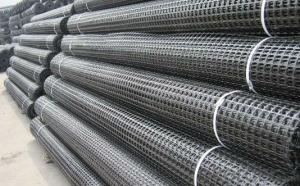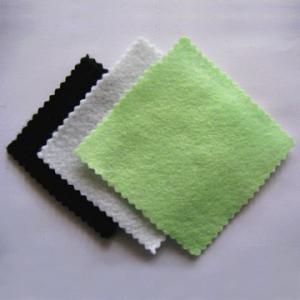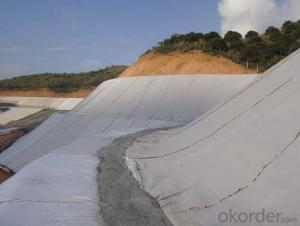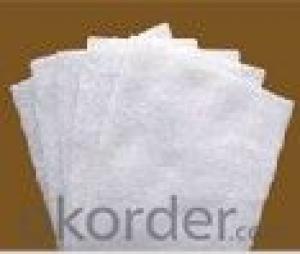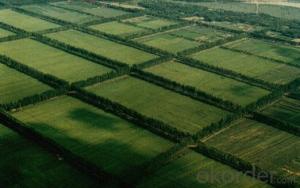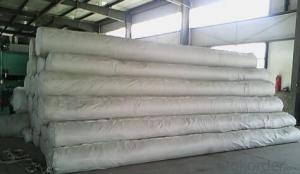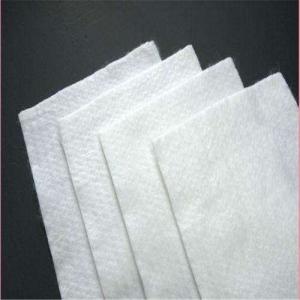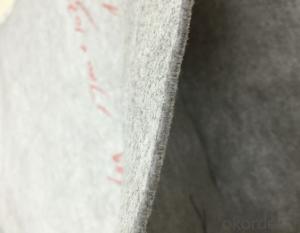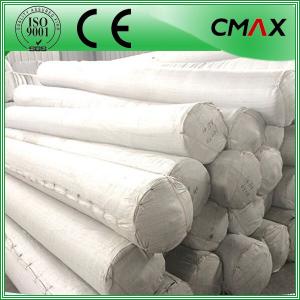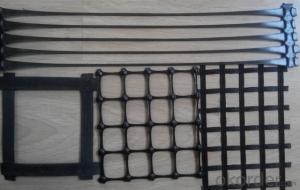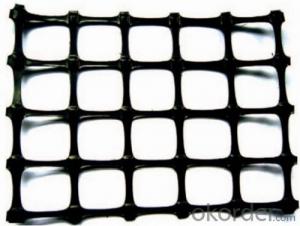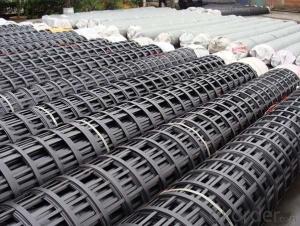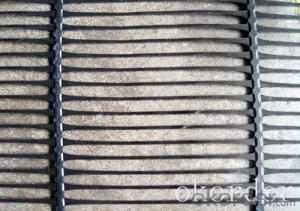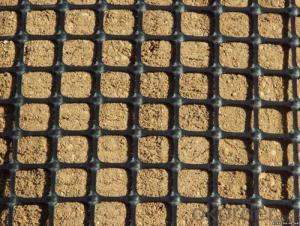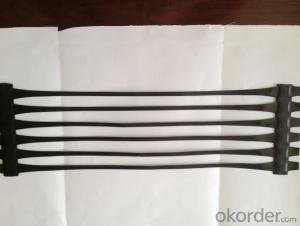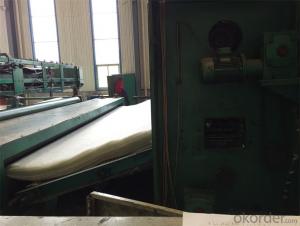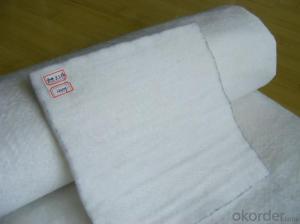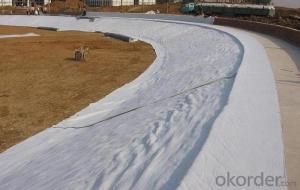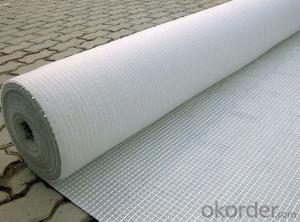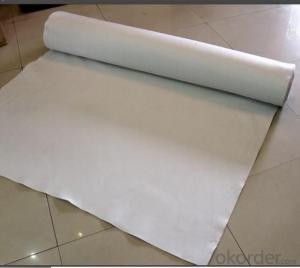Geotextile Hubo PP Biaxial Geogrid for Road Construction
- Loading Port:
- China Main Port
- Payment Terms:
- TT OR LC
- Min Order Qty:
- -
- Supply Capability:
- -
OKorder Service Pledge
OKorder Financial Service
You Might Also Like
Packaging & Delivery
| Packaging Detail: | Export standard package or packed according to your requests |
| Delivery Detail: | 5-10days after advanced payment |
Specifications
Biaxial Geogrid
1.Polypropylene plastic material
2.Geogrid for road construction use
4.plastic geogrid with CE certificate
PP Biaxial Geogrid
The properties of Biaxial Geogrids, made in Polypropylene (PP) with their square apertures, high tensile strength and optimised geometry of nodes and ribs make them equal to any other similar material. The reinforcing action of PP Biaxial Geogrids lies mainly in confining soil and increasing its shearing resistance by a process of interlocking between the square ribs and the soil. The load dispersal effect from the interlocking mechanism is highly effective and can reduce sub-base thickness and construction cost. PP Biaxial Geogrids can be used with any kind of mechanical fill material. Two aperture size ranges are available for optimum matching with project fill.
Speicification of PP Biaxial Geogrid
Property | Test Method | TGSG 15-15 | TGSG 20-20 | TGSG 30-30 | TGSG 40-40 | |
Ultimate tensile strength(1) (kN/m) | MD |
ASTM D 6637 | 15 | 20 | 30 | 40 |
CD | 15 | 20 | 30 | 40 | ||
Elongation at maximum load (%) | MD | 13 | ||||
CD | 13 | |||||
Tensile strength at 2 % elongation (kN/m) | MD | 5 | 7.5 | 10.5 | 14 | |
CD | 5 | 7.5 | 10.5 | 14 | ||
Tensile strength at 5 % elongation (kN/m) | MD | 7 | 14 | 21 | 28 | |
CD | 7 | 14 | 21 | 28 | ||
Minimum Carbon Black | % | ASTM D 4218 | 2 | |||
Dimensions
Roll Length(m) | 100/50 |
Roll Width(m) | 2/3.9/3.95 |
- Q: What are the benefits of using geotextiles in construction projects?
- Geotextiles offer several benefits in construction projects. Firstly, they provide effective erosion control by stabilizing soil and preventing sediment movement, helping to maintain the integrity of embankments and slopes. Additionally, geotextiles act as a barrier against weed growth, minimizing maintenance efforts. They also enhance drainage and filtration systems, improving the overall performance of infrastructure projects. Furthermore, geotextiles can be used as reinforcement materials, providing strength and stability to various construction components like roads, retaining walls, and foundations. Overall, the use of geotextiles in construction projects offers cost-effective and environmentally friendly solutions for a range of engineering challenges.
- Q: How do geotextiles help in preventing soil erosion in construction sites?
- Geotextiles help in preventing soil erosion in construction sites by acting as a barrier between the soil and the forces that cause erosion, such as wind and water. These synthetic fabrics are placed on the soil surface or embedded within it to stabilize the soil and enhance its strength. Geotextiles also improve filtration and drainage, reducing water flow velocity and preventing the loss of fine soil particles. By providing reinforcement and protection, geotextiles effectively mitigate soil erosion and maintain the stability of construction sites.
- Q: Can geotextiles be used in the construction of wastewater treatment plants?
- Yes, geotextiles can be used in the construction of wastewater treatment plants. Geotextiles are commonly used in various applications within wastewater treatment plants, such as filtration and drainage systems, erosion control, and soil stabilization. They help enhance the overall efficiency, durability, and environmental sustainability of the treatment plant infrastructure.
- Q: How do geotextiles help in stabilizing embankments?
- Geotextiles help in stabilizing embankments by providing reinforcement and support to the soil. They act as a barrier between the soil particles, preventing erosion and soil movement. Geotextiles also distribute the load evenly, reducing the risk of soil settlement and slippage. Moreover, they enhance the drainage capabilities of the embankment, allowing excess water to flow through while retaining the soil in place. Overall, geotextiles contribute to the stability and longevity of embankments by improving their strength, erosion control, and drainage properties.
- Q: Water stability grassroots health permeable geotextile or plastic film is good?
- 1, geotextile cloth, high unit price. 2, plastic film poor maintenance, generally do not. 3, moisturizing cotton, grass mountain child with more.
- Q: What are the different geotextile erosion control products available in the market?
- There are several geotextile erosion control products available in the market, including geotextile mats, geotextile tubes, geotextile blankets, and geotextile grids. These products are designed to prevent soil erosion by providing stability, filtration, and reinforcement to the soil. Geotextile mats are typically used for slope stabilization, while geotextile tubes are commonly used for shoreline protection and dewatering applications. Geotextile blankets are used for erosion control on steep slopes and channels, and geotextile grids are often used for soil stabilization in areas with heavy traffic or high loads.
- Q: Geotextile construction requirements of the use of adhesive specifications
- Hello, geotextile construction is very simple, laying with less cutting, less overlap for the principle. Take the head set aside about 25 cm. Using double take the head, sew two lines. This is in principle to ask this, the general construction can not do so carefully. Huazhi geotechnical materials manufacturers to answer, need to talk.
- Q: What is the meaning of geotextile anchoring?
- Geotextile anchorage: is the geotextile in the construction of civil engineering construction in the slope of the fixed, to prevent the geotextile movement.
- Q: It is good to cover the geotextile
- What are you breeding? Tarpaulin can be waterproof and waterproof, do not know if you have not seen geotextiles, geotextiles and silk cotton coat inside the like, light, there is a certain role in insulation, but not waterproof. Hope to help you
Send your message to us
Geotextile Hubo PP Biaxial Geogrid for Road Construction
- Loading Port:
- China Main Port
- Payment Terms:
- TT OR LC
- Min Order Qty:
- -
- Supply Capability:
- -
OKorder Service Pledge
OKorder Financial Service
Similar products
Hot products
Hot Searches
Related keywords
